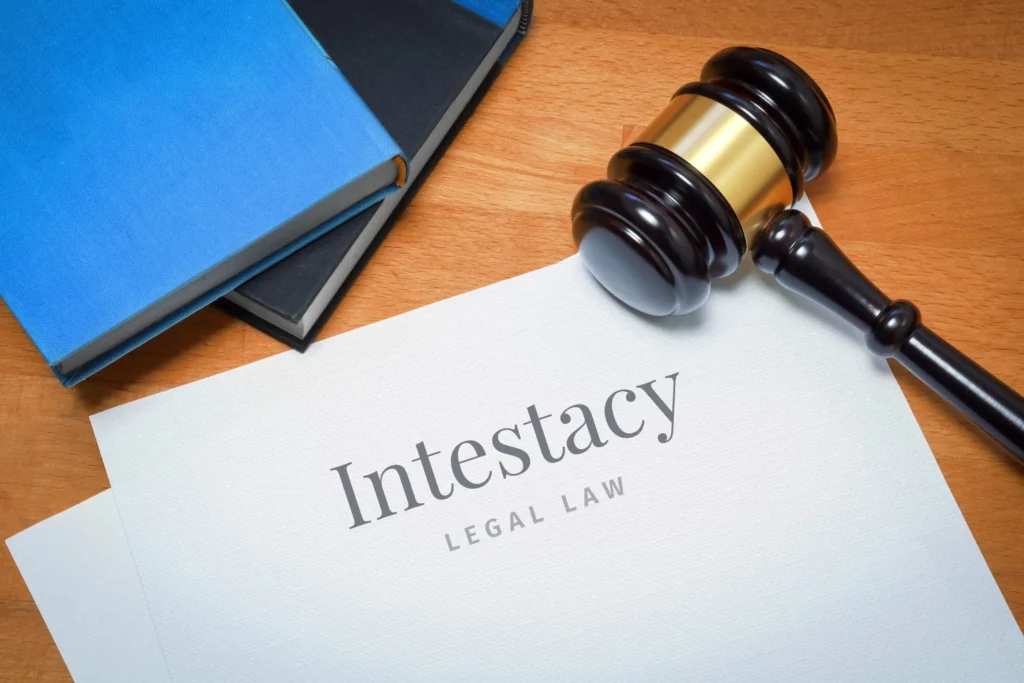Implications of Dying Intestate in Texas
Dying intestate, or without a will, can lead to significant legal complications and unintended consequences for your heirs. In Texas, the distribution of your assets will be governed by state intestacy laws, which may not align with your wishes. This can result in your property being divided among relatives you may not have intended to benefit, creating potential disputes and confusion.
For instance, if you pass away without a spouse or children, your estate may be distributed to distant relatives, such as cousins or even more remote descendants. Additionally, the absence of a will can complicate the probate process, leading to increased legal fees and extended timelines for settling your estate, which can be burdensome for your loved ones during an already difficult time.
Steps to Take When Facing Intestacy
If you find yourself in a situation where a loved one has died intestate, there are critical steps you should take to navigate the legal landscape. First, it is essential to gather all relevant documents and information regarding the deceased's assets, debts, and potential heirs. This will help in understanding the estate's value and the parties involved.
Consulting with an experienced probate attorney can also be invaluable in these situations. They can guide you through the probate process, help you file necessary paperwork, and represent your interests in court, ensuring that the estate is settled according to Texas law and that rightful heirs receive their due inheritance.
Common Misconceptions About Intestacy Laws
There are several misconceptions surrounding intestacy laws that can lead to confusion and misinformation. One common myth is that all assets automatically go to the surviving spouse, which is not always the case in Texas. Depending on the nature of the assets and the family structure, children or other relatives may also have claims.
Another misconception is that having a will is unnecessary if you have a trust or other estate planning tools. However, without a will, the specifics of your wishes may not be honored, and the intestacy laws will dictate how your estate is handled, potentially undermining your overall estate planning strategy.
How to Prepare Your Estate to Avoid Intestacy
To prevent the complications associated with intestacy, proactive estate planning is crucial. This involves creating a legally binding will that clearly outlines your wishes regarding the distribution of your assets and the care of any dependents. Regularly updating this document to reflect changes in your life circumstances, such as marriage, divorce, or the birth of children, is equally important.
Additionally, consider setting up trusts or designating beneficiaries for certain assets, such as life insurance policies and retirement accounts. These measures can help streamline the transfer of your assets upon your death and ensure that your estate is managed according to your wishes, thus avoiding the pitfalls of intestacy.
Implications of Dying Intestate in Texas
Dying intestate, or without a will, can lead to significant legal complications and unintended consequences for your heirs. In Texas, the distribution of your assets will be governed by state intestacy laws, which may not align with your wishes. This can result in your property being divided among relatives you may not have intended to benefit, creating potential disputes and confusion.
For instance, if you pass away without a spouse or children, your estate may be distributed to distant relatives, such as cousins or even more remote descendants. Additionally, the absence of a will can complicate the probate process, leading to increased legal fees and extended timelines for settling your estate, which can be burdensome for your loved ones during an already difficult time.
Steps to Take When Facing Intestacy
If you find yourself in a situation where a loved one has died intestate, there are critical steps you should take to navigate the legal landscape. First, it is essential to gather all relevant documents and information regarding the deceased's assets, debts, and potential heirs. This will help in understanding the estate's value and the parties involved.
Consulting with an experienced probate attorney can also be invaluable in these situations. They can guide you through the probate process, help you file necessary paperwork, and represent your interests in court, ensuring that the estate is settled according to Texas law and that rightful heirs receive their due inheritance.
Common Misconceptions About Intestacy Laws
There are several misconceptions surrounding intestacy laws that can lead to confusion and misinformation. One common myth is that all assets automatically go to the surviving spouse, which is not always the case in Texas. Depending on the nature of the assets and the family structure, children or other relatives may also have claims.
Another misconception is that having a will is unnecessary if you have a trust or other estate planning tools. However, without a will, the specifics of your wishes may not be honored, and the intestacy laws will dictate how your estate is handled, potentially undermining your overall estate planning strategy.
How to Prepare Your Estate to Avoid Intestacy
To prevent the complications associated with intestacy, proactive estate planning is crucial. This involves creating a legally binding will that clearly outlines your wishes regarding the distribution of your assets and the care of any dependents. Regularly updating this document to reflect changes in your life circumstances, such as marriage, divorce, or the birth of children, is equally important.
Additionally, consider setting up trusts or designating beneficiaries for certain assets, such as life insurance policies and retirement accounts. These measures can help streamline the transfer of your assets upon your death and ensure that your estate is managed according to your wishes, thus avoiding the pitfalls of intestacy.



